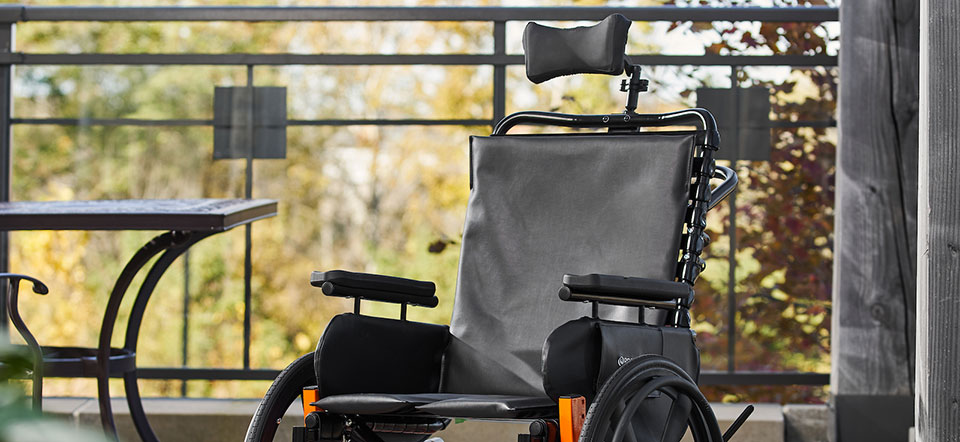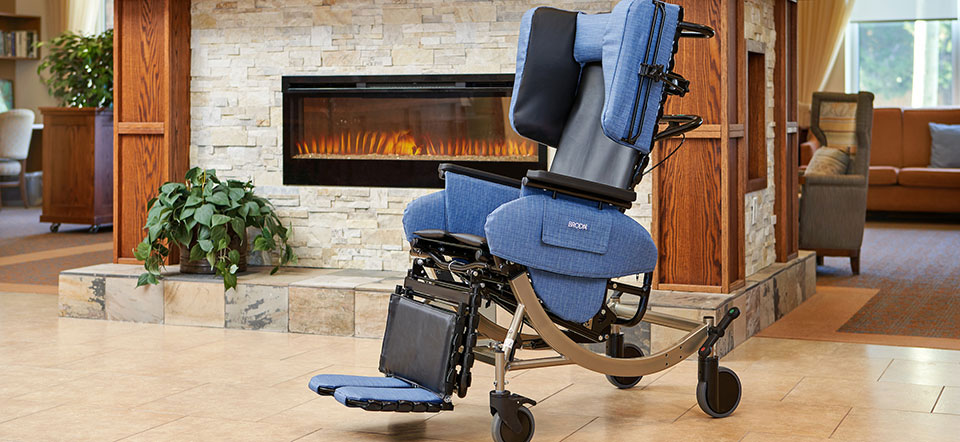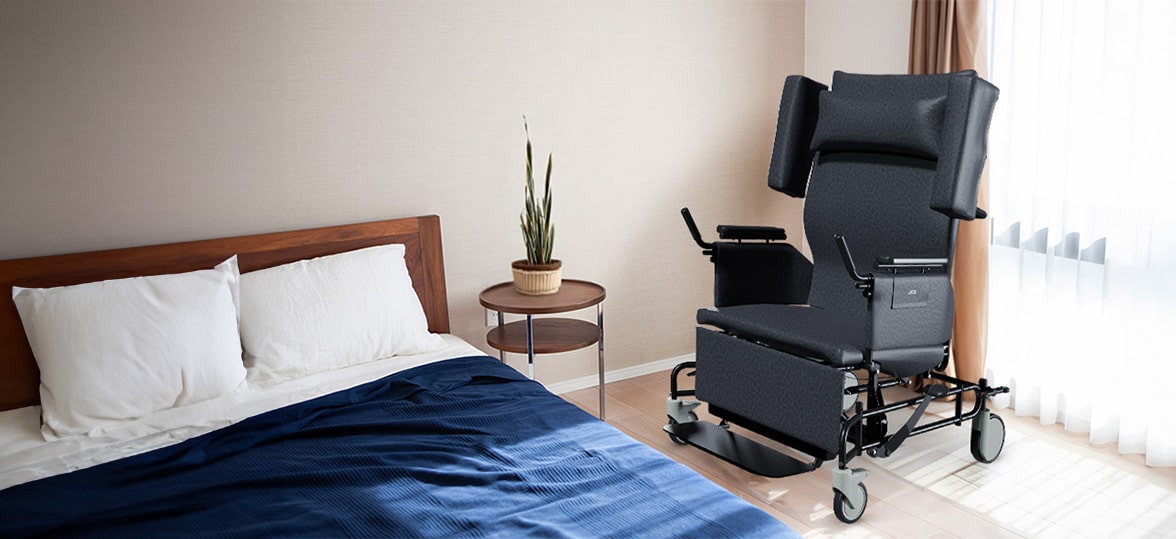When a beloved family member needs comfortable seating for long-term or complex medical care, it often feels overwhelming to sift through the endless lists of available options. It can be difficult to decide how to choose a wheelchair without in-depth knowledge of different products, so many people end up going with a recommendation from an equipment dealer or a care facility staff member.
The problem is that those recommendations can be ill-informed because of unfamiliarity with the many different types of seating options or the latest information on the most clinically valid and popular products. A bigger price tag can turn off caregivers and families alike, but without proper knowledge, they might end up ignoring the true total value and proven clinical application of premium seating equipment.
The True Costs of Low-Priced Wheelchairs

Wheelchairs that are less expensive from the outset are often only cheaper because of their lower quality and limited clinical functionality. These types of basic equipment typically require additional — and costly — cushions, padding, and add-ons to even begin to offer adequate comfort and support to users.
The seating systems and frame components of these low-priced wheelchairs often break or wear down, which leads to frequent repairs or outright replacement. Studies have shown that up to 33 percent of falls, incidents, and injuries among full-time wheelchair users stem from component failure. By choosing high-quality seating equipment, families can ensure their loved ones don’t experience an unfortunate injury.
You might only pay around $600 for your basic complex wheelchair or geriatric chair compared to up to a couple thousand of dollars for one of Broda’s industry-leading tilt-in-space positioning or mobility wheelchairs, but those figures don’t tell the full story. The inexpensive models might seem like the logical fiscal choice, but the consequences of a budget chair are almost immediate for caregivers, users, and families.
Residents might find it difficult or impossible to use the basic wheelchairs for very long because of uncomfortable seating, and these cheap devices make it more likely that individuals will suffer pressure injuries — more than 2.5 million people develop pressure injuries every year in the U.S. alone because of inadequate durable medical equipment. Broda’s wheelchairs position users so that they avoid pressure injuries.
Additionally, once family members and caregivers get sick of required comfort upgrades or a seemingly endless cycle of repairs, they often regret not opting for a complete high-end option from the start. The benefits of a proven premium solution quickly outweigh the costs, and they realize that Broda’s wheelchairs provide better positioning and comfort for their loved ones, which helps them enjoy a higher quality of life. Broda’s wheelchairs can come ready to go out of the box with integrated Comfort Tension Seating©, so buyers don’t need to spend extra money on comfort upgrades or constant upkeep.
Comfort and pressure redistribution have been a part of every single Broda product for more than 38 years. Broda’s team of seasoned industry experts carefully selects every component of our wheelchairs to ensure quality and durability, and we are proud to stand by our products with a 10-year warranty. These factors combine to drastically reduce the stress, worry, and risk of incidents related to subpar, inferior, or faulty equipment.
What to Consider Before Buying a Wheelchair
If you’re wondering how to choose a wheelchair for your loved one, it’s important to consider your desired functionality, condition, and care setting. Our product catalog, clinical resources, and intuitive chair-matching algorithm can help anyone match their needs with the correct products.

If you’re feeling at a loss for how to begin your search, additional key factors to consider include:
- Comfort, like seat padding and back support
- Adjustability and customization options
- User mobility and level of independence
- Portability and storage
- Environment: will the chair be used indoors, outdoors, or both?
- Durability and weight capacity
- Maintenance and upkeep
- Budget and insurance considerations
The answers to these questions can also help you ensure that you’re able to match a wheelchair choice with the needs of your loved one:
- What are your holistic needs?
A chair is only useful when it meets the user’s needs, so consider how the chair must address all of them. For example, the right product can simultaneously address fall concerns and increase a person’s tolerance for sitting. Improved support and comfort lead to better positioning, which reduces agitation, the need to shift the body throughout the day, and the risk of falls. The same is true for pressure redistribution and mobility. Wheelchair users need stable seating to propel themselves, but lower-quality seating is not able to distribute pressure properly. A chair with Broda’s proprietary Comfort Tension Seating© provides adequate stability and pressure redistribution. - What specific medical condition are you trying to address?
Your loved one’s specific condition determines many of the goals the right chair should accomplish and which features can provide optimal comfort and safety. Huntington’s disease, for instance, can cause high levels of agitation — patients who have this condition require a durable and stable chair that boasts sufficient padding to prevent injuries. Broda’s wheelchairs have been recognized by the Huntington’s Disease Society of America for providing excellent comfort and pressure redistribution for individuals who have Huntington’s. If your loved one requires manual transfer or transfer via a mechanical lift, the chair you buy should have removable or swing-away arms to accommodate easy and safe transfers. Keep in mind that many healthcare conditions lead to declining mobility, so consider how you can modify a chair to address your loved one’s evolving needs. - What are your total budgetary concerns?
While we’ve covered the dangers of prioritizing price above all else, cost remains an important factor when weighing products. In addition to your immediate concerns, consider your long-term needs. Higher-quality equipment might require a more substantial initial investment, but it pays dividends through fewer repairs and product replacements. The benefits also extend to the quality of care that your loved one receives. Comfortable and durable equipment allows patients to enjoy their lives and experience fewer adverse consequences. In addition to saving money over time, your loved one enjoys many physical and psychological benefits from using the best equipment.
Before you make a decision, ask these questions and take a few different wheelchairs for a trial run. If a chair isn’t comfortable, doesn’t address fall risks, doesn’t provide proper positioning, or doesn’t have the features your loved one needs, then it isn’t the right choice. A higher-quality chair can make a tremendous difference in your loved one’s life. Consider every factor at play — not only cost — and you’ll see that higher-quality wheelchairs are a far better investment for your family member.
Broda offers wheelchairs that can meet many needs, including:
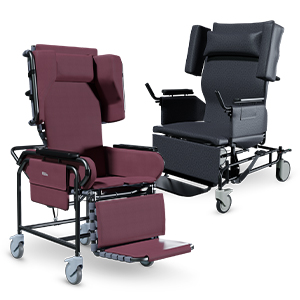 Positioning Wheelchairs | 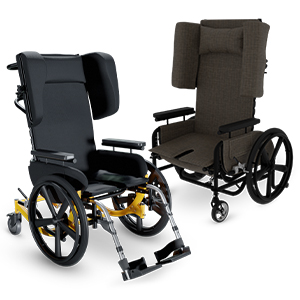 Pedal Wheelchairs | 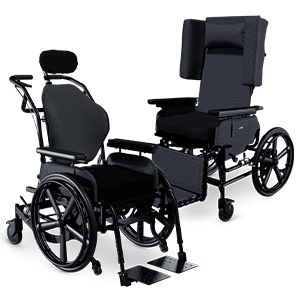 Rehabilitation Wheelchairs | 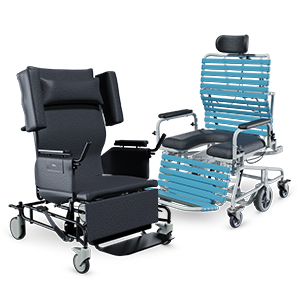 Bariatric Wheelchairs | 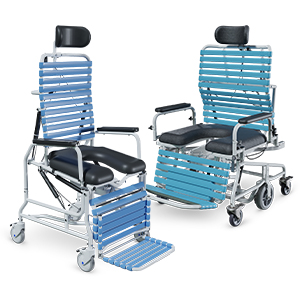 Shower Commode Wheelchairs | 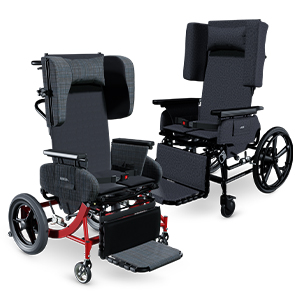 Transport Wheelchairs |
Find the Right Wheelchair For Your Loved One from Broda
This is an important decision, so Broda is here to help! Our seating and care experts will work with you to select the best wheelchair for your needs. We will also identify a Broda Partner near you who will provide the best service and fair purchase pricing or rental options.
Ready to order a Broda wheelchair? Contact us or learn more here.
